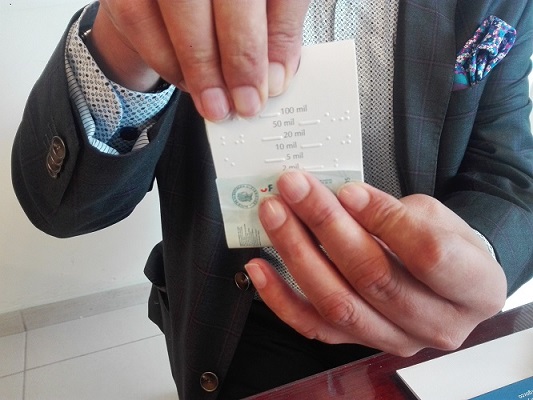An unprecedented study in Brazil developed by the University of São Paulo (USP) carries out the genetic mapping of 100 children with childhood apraxia of speech (AFI) to identify the genetic alterations that lead to the disorder, which is still largely unknown in Brazil. The intention is to assist in new treatment options in the future. AFI is a disorder that interferes with the reproduction of speech sounds. According to the speech therapist and technical consultant of the Brazilian Association of Speech Apraxia in Childhood (Abrapraxia), Elizabeth Giusti, the child knows what he wants to say, but the brain does not send the appropriate commands to move the articulators, the tongue, the lips and the jaw.
The research is an initiative of Abrapraxia, an entity created from the union of three mothers who have children diagnosed with the disorder and created a support network in 2016. Since then, the entity has trained more than 15 thousand people, including speech therapists, therapists, parents and family members, in addition to offering regular courses. Data from the entity indicate that the disorder, little discussed in Brazil, affects two in every thousand children.
The study is financed by Abrapraxia, but it has a counterpart from USP, which provides free services. The head professor of genetics at the Institute of Biosciences at USP, Maria Rita Passos Bueno, who coordinates the project’s genetics area, said that in the current phase the results are already positive.
“The results are very promising where we are finding genetic characterization in practically 50% of the sample. The study, in addition to confirming some already suggestive genes associated with speech apraxia, is also enabling the identification of new candidate genes for speech apraxia”, he said, informing that among the 50% only two cases have speech apraxia, in in other cases there is some other clinical alteration such as autism spectrum, intellectual disability and seizures.
The forecast is to conclude this phase of the study by the end of this year, but according to the coordinator, the intention is to continue moving forward with the project, which still needs funding for a new stage. “We won’t be able to solve all the questions with this project, which is initial. The first step is to characterize the genetic alterations of speech apraxia in this series of Brazilian children. The second phase is to resolve the cases where we cannot find the genetic cause,” she said.
Bruna Ribeiro is the mother of 10-year-old Gabriel, one of the children participating in the study. In addition to Apraxia, the son was diagnosed with autism spectrum, which also occurs with other children with speech disorders. Bruna said that Gabriel was born extremely premature at 29 weeks and until the age of three he had not been diagnosed with apraxia. “As he had global motor delay, he took a long time to sit down, to walk, he didn’t make the transitions, I always thought that speech would come. Even though he babbled a little, my focus was always on the overall motor delay. I didn’t even imagine, didn’t even know there was apraxia of speech,” she revealed.
The diagnosis came when the speech therapist who worked with the boy took a course held by Abrapraxia in Goiânia, Goiás, and identified Gabriel’s speech disorder. “Up until the age of four he was non-verbal. At the age of four he spoke his first word. He said Ana, which is the name of my niece and goddaughter. Today Gabriel speaks well, he doesn’t have some sounds, for example, or, og, but he makes himself understood”, she commented.
training
Dr. Elizabeth Giusti, called attention to the need to train professionals in the area, given the lack of knowledge about the disorder in Brazil, which can lead to an error in the diagnosis and harm the child’s development. According to the speech therapist, this is a type of disorder that needs to be managed with several types of components for the therapy to work. For this, it is essential to have a highly motivated child, because it is necessary to transform something difficult for him into pleasurable.
“If you are demanding something from the child that is a wound for them, very difficult, then therapies need to be motivating and creative. Professionals need to be resilient, because it is not a disorder that will see results in a month. It’s not just the technique itself, but there’s a whole issue of managing the child, the environment, of being able to give the challenge in the right measure. If you give too little, it doesn’t take the child out of place, but if you give too much, it frustrates the child, because what you’re asking is too much. Finding that balance point to give the child the right challenge is something that goes far beyond just the application of techniques. This empathetic look of understanding how difficult that moment is for the family and how challenging it is for the child”, she pointed out.
Elizabeth Giusti also recommended the structure of a multidisciplinary team, including an occupational therapist and a physical therapist. “With speech difficulties (the child) may not be able to interact with friends and may generate inappropriate behaviors, being, on the one hand, an inhibited child or, on the other hand, wanting to bite their friends. It is important to look at the child as a whole”, she commented, adding that it is also important for the team to have contact with the teacher because she is the one who is there in contact with the child at school every day.
Although the National Supplementary Health Agency (ANS) authorizes complete treatments with speech therapists, psychologists, physiotherapists and occupational therapists, Gabriel’s mother said that, despite having an injunction allowing the treatment, she cannot have access to all professionals because of the your type of health plan. “There is an injunction for the plan, but I cannot enforce this service of mine because of the network of professionals and the availability they have during hours. Their accredited network is small and cannot meet the demand,” she said.
early diagnosis
The speech therapist also warned of the importance of early diagnosis so that the child can have access to adequate treatment for the disorder. According to her, unlike what happens with a child with typical development, in which learning to speak is something that happens naturally through stimuli when having contact with people around them, in a child with apraxia, learning to speak is not something Natural.
“The child needs to be taught how to move the articulators for this speech production to occur. Early diagnosis means access to adequate treatment and adequate support for the family. I see that many children, when they do not have access to this early diagnosis, often end up being referred to other types of treatment, which are not the most appropriate for this condition, which ends up generating frustration for the growing child. Her perception of the difficulty will get bigger and bigger. What starts, for example, with a difficulty in developing speech ends up generating other developmental consequences, such as low self-esteem, difficulty socializing with other children”, she concluded.
Public network
Elizabeth Giusti says that Abrapraxia develops courses for professionals and families of children with the disorder and the information can be obtained at site.
The specialist added that since its creation, in 2016, the association has been working to assist families that do not have the financial means to pay for the treatment. The speech therapist also said that the association also offers training courses for speech therapists and part of the vacancies is intended for professionals working in the SUS.









